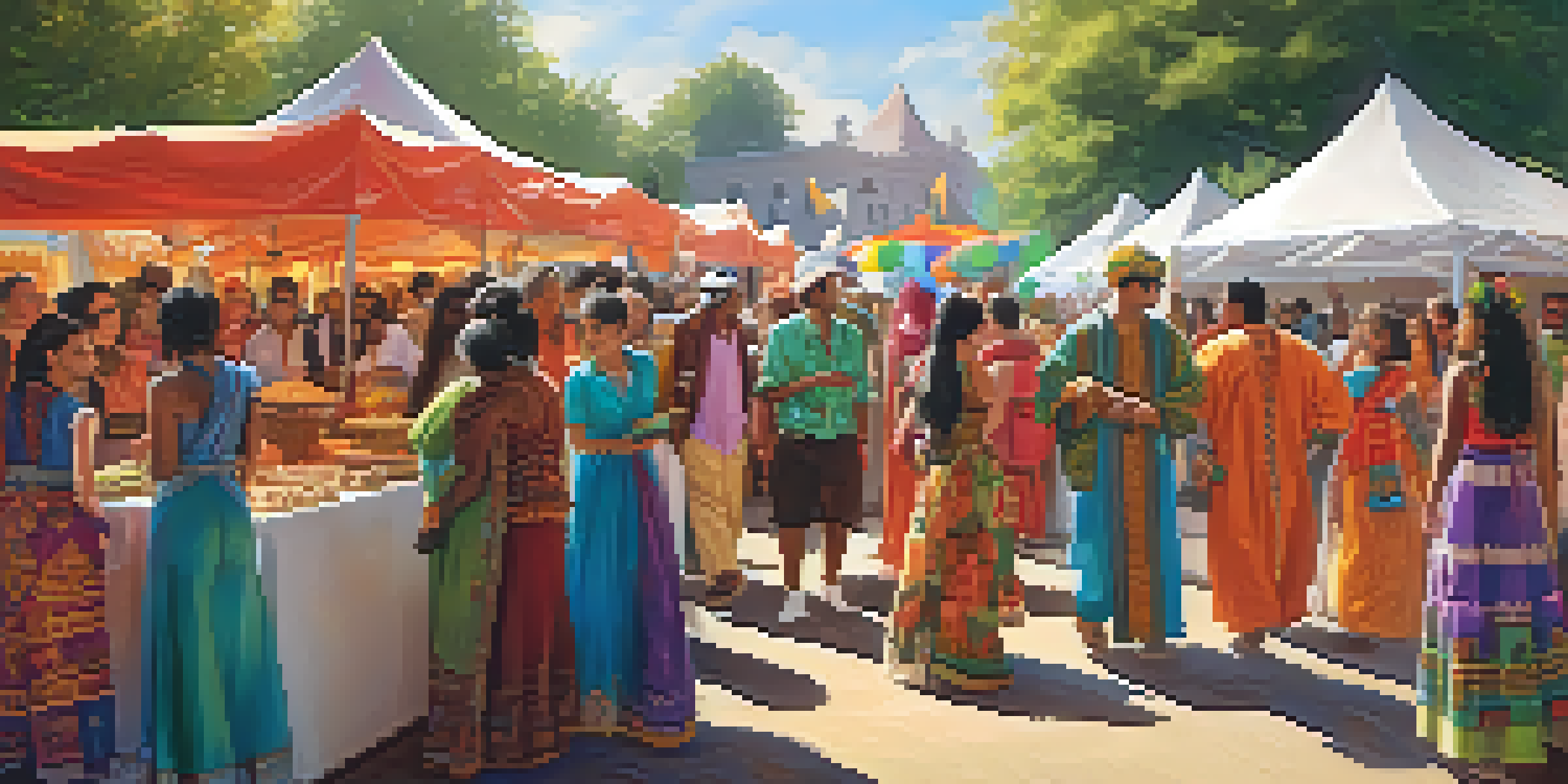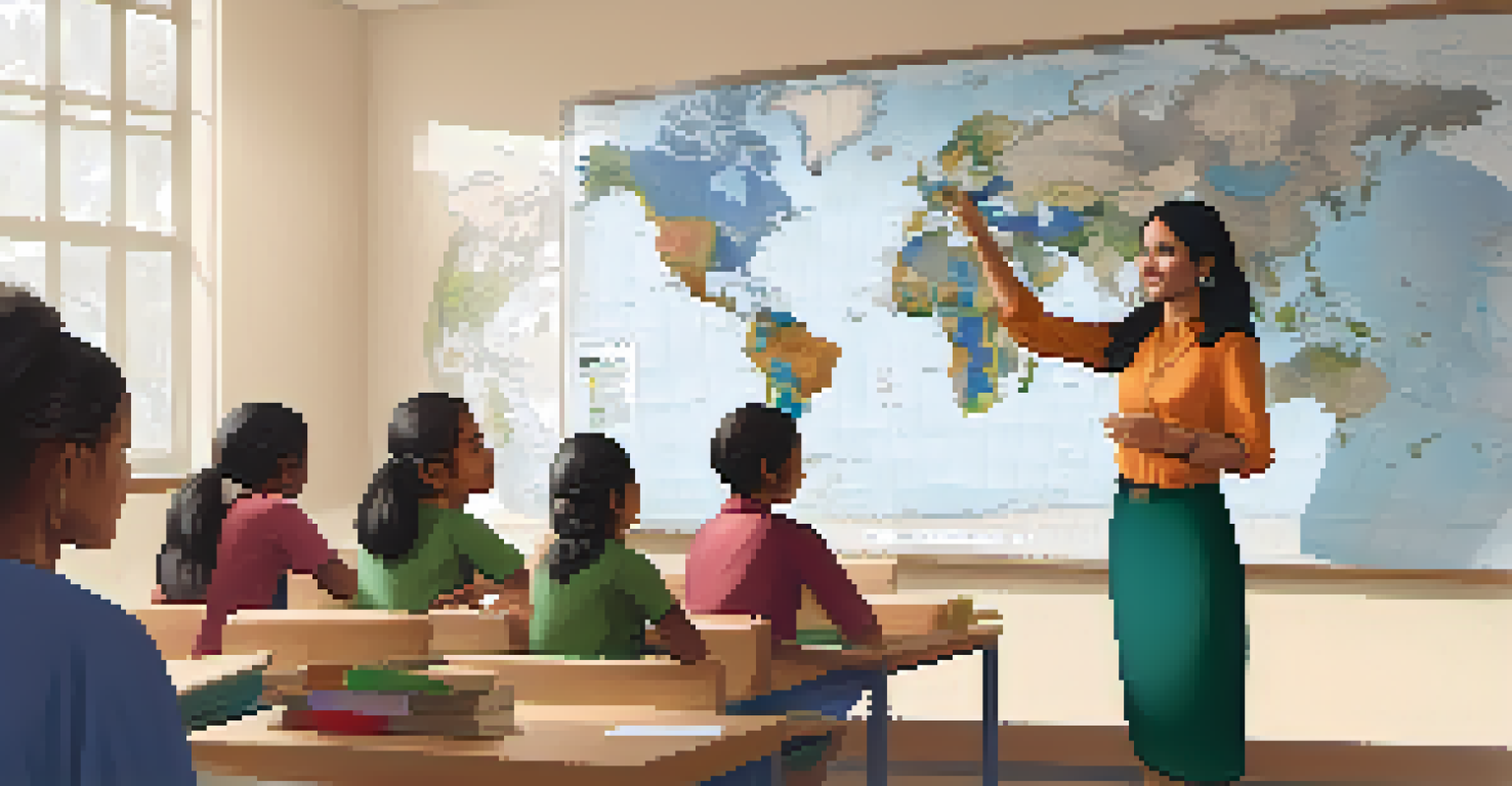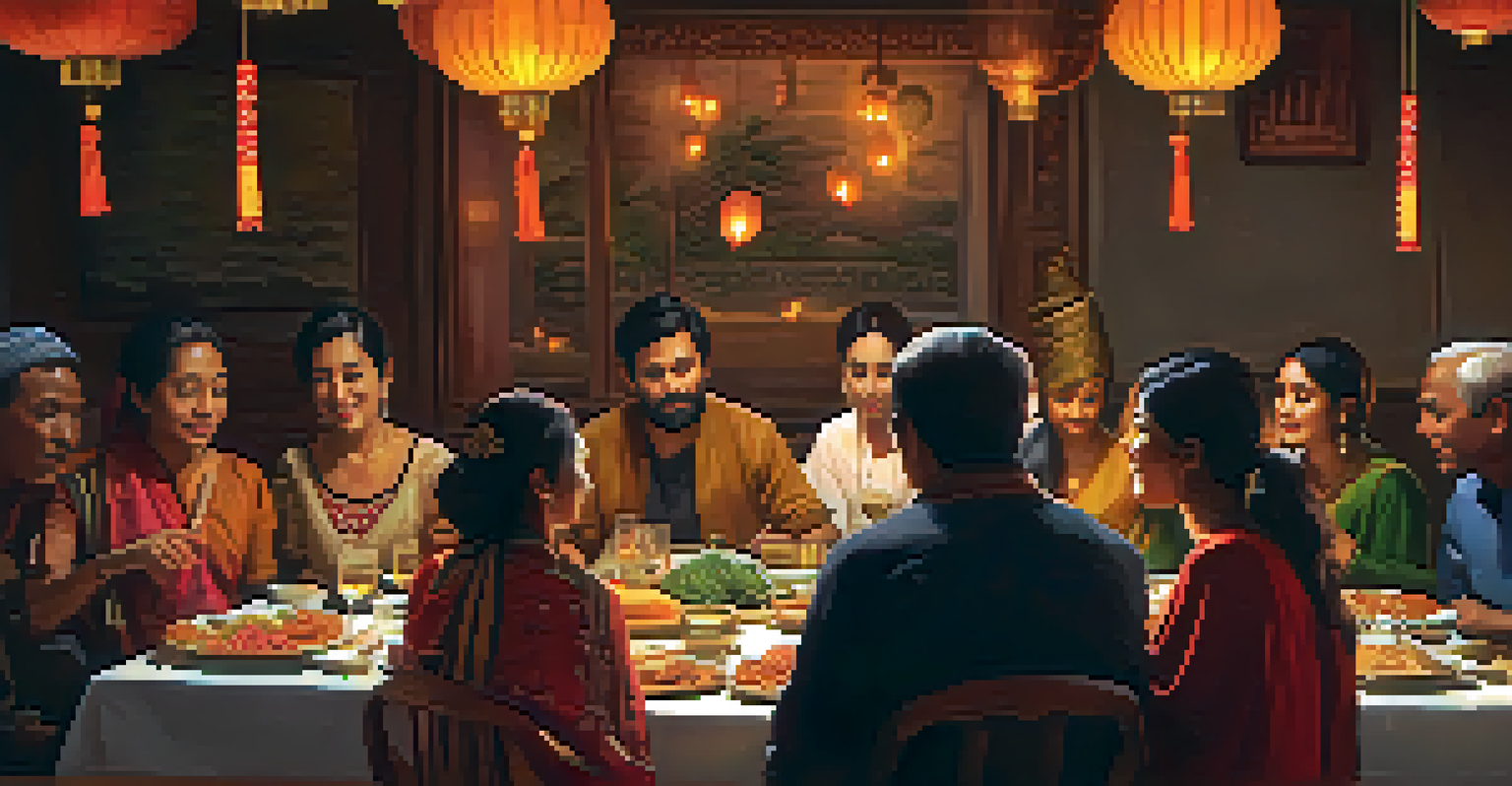Promoting Respect and Understanding Among Cultural Groups

Understanding Cultural Diversity in Today’s World
Cultural diversity refers to the variety of cultural groups that exist within a society. In today's interconnected world, it's more important than ever to understand and embrace these differences. Each culture brings unique perspectives, traditions, and values that enrich our communities and promote creativity.
Diversity is the one true thing we all have in common. Celebrate it every day.
When we recognize the significance of cultural diversity, we begin to see the world through a broader lens. This awareness can foster empathy and respect, allowing us to appreciate the unique stories and experiences that shape individuals. Like a tapestry, each thread contributes to a beautiful and complex picture.
Understanding cultural diversity is the first step toward building relationships founded on respect. By learning about other cultures, we can break down stereotypes and misconceptions, paving the way for meaningful interactions and collaborations.
The Role of Education in Promoting Respect
Education plays a vital role in fostering respect and understanding among cultural groups. By incorporating multicultural education into curricula, students are exposed to a range of perspectives from an early age. This exposure creates an environment where differences are celebrated rather than feared.

When students learn about various cultures, they develop critical thinking skills that challenge their preconceived notions. For instance, a lesson on global traditions can spark curiosity and inspire students to explore new ideas and practices. Education becomes a bridge that connects diverse communities.
Embracing Cultural Diversity
Understanding and embracing cultural diversity enriches our communities and fosters empathy.
Moreover, educational institutions can serve as safe spaces for dialogue and discussion. By encouraging open conversations about cultural differences and similarities, schools can help students cultivate respect for one another, ultimately contributing to a more harmonious society.
Engaging in Dialogue to Build Understanding
Open dialogue is essential for promoting understanding among cultural groups. When individuals engage in conversations about their beliefs and experiences, it fosters a deeper connection and lays the groundwork for mutual respect. It’s like sharing a meal; when we break bread together, barriers begin to crumble.
The beauty of the world lies in the diversity of its people.
Creating spaces for dialogue can be as simple as organizing community events or workshops. These gatherings provide opportunities for people to share their stories, listen to others, and engage in constructive discussions. The more we talk, the more we learn about each other’s backgrounds and traditions.
Additionally, active listening is crucial during these conversations. By truly hearing what others have to say, we validate their experiences and show that we value their perspectives. This practice cultivates an atmosphere of respect and encourages ongoing dialogue among diverse cultural groups.
Celebrating Cultural Events and Traditions
Celebrating cultural events and traditions is a powerful way to promote respect and understanding. When communities come together to recognize different cultural celebrations, they create opportunities for learning and appreciation. It’s an invitation to step into someone else’s shoes and experience their joy and heritage.
Take, for example, a multicultural festival where various cultural groups showcase their art, music, and food. Such events not only entertain but also educate attendees about the richness of different cultures. It’s a chance to celebrate diversity and foster connections through shared experiences.
Education Promotes Respect
Incorporating multicultural education encourages critical thinking and appreciation for different perspectives.
Moreover, these celebrations can help dispel stereotypes and misconceptions. When we engage with different cultures in a positive and festive setting, we humanize one another, making it easier to appreciate our differences and similarities. In essence, celebrating cultural diversity is a joyful way to build bridges across communities.
The Power of Storytelling in Cultural Understanding
Storytelling is a powerful tool for promoting respect and understanding among cultural groups. Through personal narratives, individuals can share their experiences and insights, allowing others to glimpse their lives and traditions. It’s a way of passing down wisdom and fostering empathy.
When we listen to stories from diverse cultures, we gain a deeper appreciation for the unique challenges and triumphs faced by others. For instance, a story about overcoming adversity can resonate with many, regardless of cultural background. This shared humanity helps bridge cultural divides.
Additionally, storytelling encourages connection and reflection. By sharing our own stories, we invite others to do the same, creating a space for dialogue and understanding. In a world where communication can sometimes falter, stories remind us of our common threads and the beauty of our differences.
Encouraging Inclusivity in Communities
Inclusivity is a cornerstone of respect and understanding among cultural groups. When communities actively encourage inclusivity, they create environments where everyone feels valued and heard. This can lead to stronger bonds and a greater sense of belonging for all members.
To foster inclusivity, communities can implement policies and practices that promote equal representation. This might involve creating diverse leadership teams or ensuring that community events are accessible to everyone. By doing so, we show that every voice matters, regardless of cultural background.
Storytelling Bridges Cultures
Storytelling allows individuals to share experiences, fostering connection and understanding among diverse groups.
Moreover, inclusivity can drive innovation and creativity. When diverse perspectives come together, they can lead to new ideas and solutions that benefit everyone. In this way, promoting inclusivity is not only an act of respect but also a catalyst for growth and progress within communities.
The Impact of Media on Cultural Perceptions
Media plays a significant role in shaping our perceptions of different cultures. The portrayals we see in films, television, and news can either reinforce stereotypes or promote understanding. It’s important to critically evaluate these representations and seek out diverse voices in media.
When media accurately reflects the richness and complexity of various cultures, it can foster empathy and respect among audiences. For example, documentaries that highlight cultural practices can educate viewers about traditions they may know little about. This exposure can challenge preconceived notions and encourage open-mindedness.

Moreover, supporting media that prioritizes diversity helps to amplify underrepresented voices. By choosing to engage with content that celebrates cultural differences, we contribute to a more inclusive narrative that respects and honors all cultures. In this way, media can be a powerful ally in promoting understanding.